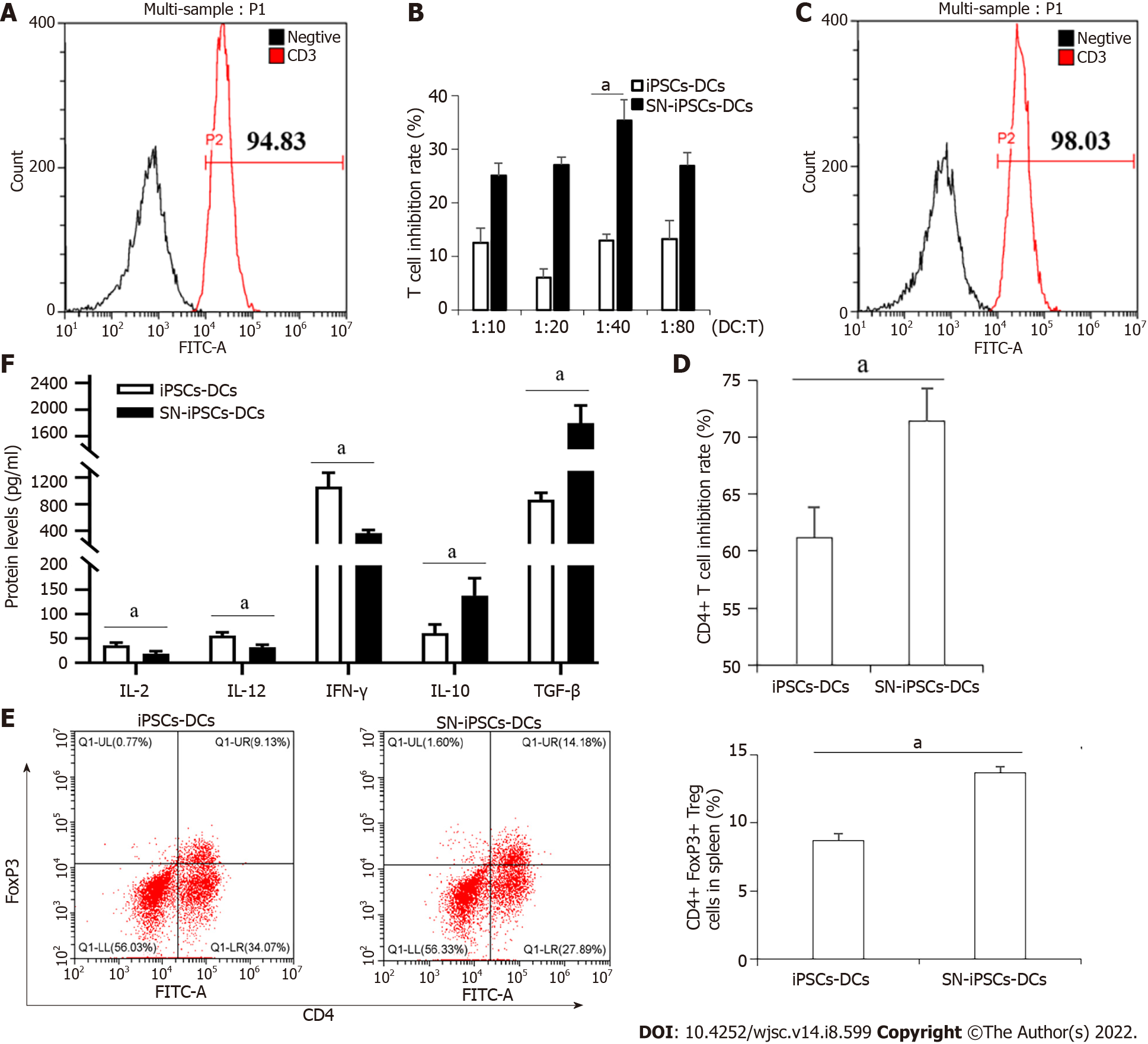Copyright
©The Author(s) 2022.
World J Stem Cells. Aug 26, 2022; 14(8): 599-615
Published online Aug 26, 2022. doi: 10.4252/wjsc.v14.i8.599
Published online Aug 26, 2022. doi: 10.4252/wjsc.v14.i8.599
Figure 4 Sinomenine-induced pluripotent stem cells–immature dendritic cells suppress T cell proliferation and enhanced regulatory T cell proliferation.
A: Purity of CD3+ T cells after sorting; B: Mixed lymphocyte reaction at different proportions of immature dendritic cells: CD3+ T cells. Compared with induced pluripotent stem cells-dendritic cells (iPSCs-DCs) group, aP < 0.05; C: Purity of CD4+ T cells after sorting; D: Mixed culture of iPSCs-DCs or sinomenine (SN)-iPSCs-DCs and CD4+ T cells at 1:40. Compared with iPSCs-DCs group, aP < 0.05; E: Effects of iPSCs-DCs or SN-iPSCs-DCs on regulatory T (Treg) cell proliferation. Compared with iPSCs-DCs group, aP < 0.05; F: Cytokine levels in supernatants from cocultured DCs and Treg cells. Compared with iPSCs-DCs group, aP < 0.05. SN: Sinomenine; iPSCs: Induced pluripotent stem cells; DCs: Dendritic cells; IL: Interleukin; IFN: Interferon; TGF-: Transforming growth factor-.
- Citation: Huang XY, Jin ZK, Dou M, Zheng BX, Zhao XR, Feng Q, Feng YM, Duan XL, Tian PX, Xu CX. Sinomenine promotes differentiation of induced pluripotent stem cells into immature dendritic cells with high induction of immune tolerance. World J Stem Cells 2022; 14(8): 599-615
- URL: https://www.wjgnet.com/1948-0210/full/v14/i8/599.htm
- DOI: https://dx.doi.org/10.4252/wjsc.v14.i8.599









